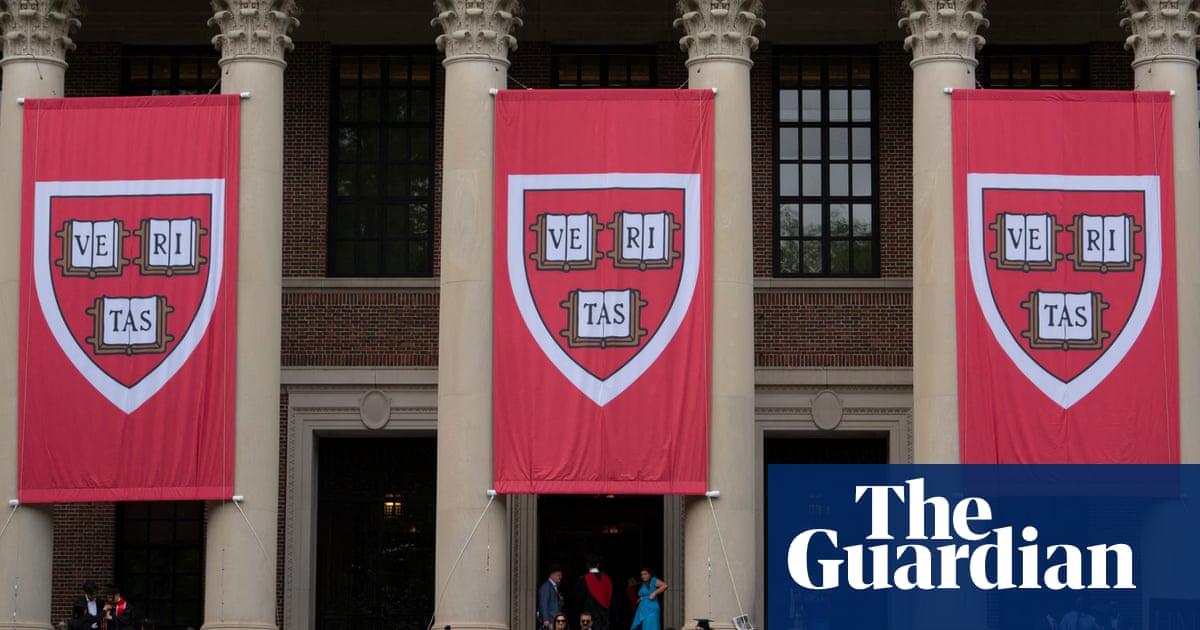Harvard Universitysaid on Thursday thatDonald Trump’s move to bar foreign nationals seeking to study at the Ivy League school from entering the United States is illegal, and asked a judge to block it immediately pending further litigation.
Harvard amended an earlier lawsuit, which it had filed amid a broader dispute with the Republican president, to challenge the proclamation thatTrump issued on Wednesday.
“The Proclamation denies thousands of Harvard’s students the right to come to this country to pursue their education and follow their dreams, and it denies Harvard the right to teach them. Without its international students, Harvard is not Harvard,” the school said in the filing.
White House spokesperson Abigail Jackson called Harvard “a hotbed of anti-American, antisemitic, pro-terrorist agitators”, claims that the school has previously denied.
“Harvard’s behavior has jeopardized the integrity of the entire US student and exchange visitor visa system and risks compromising national security. Now it must face the consequences of its actions,” Jackson said in a statement.
Trump cited national security concerns as justification for barring international students from entering the US to pursue studies at the Cambridge, Massachusetts-based university.
The suspension will initially be for six months but can be extended. Trump’s proclamation also directs the state department to consider revoking academic or exchange visas of any current Harvard students who meet his proclamation’s criteria.
In Thursday’s court filing, Harvard said Trump had violated federal law by failing to back up his claims about national security.
“The Proclamation does not deem the entry of an alien or class of aliens to be detrimental to the interests of the United States, because noncitizens who are impacted by the Proclamation can enter the United States –> just so long as they go somewhere other than Harvard,” the school said.
TheTrump administrationhas launched a multifront attack on the nation’s oldest and wealthiest university, freezing billions of dollars in grants and other funding and proposing to end its tax-exempt status, prompting a series of legal challenges.
Harvard argues the administration is retaliating against it for refusing to accede to demands to control the school’s governance, curriculum and the ideology of its faculty and students.
Trump’s directive came a week after a federal judge in Boston, the US district judge Allison Burroughs, announced she would issue a broad injunction blocking the administration from revoking Harvard’s ability to enroll international students, who make up about a quarter of its student body.
Harvard said in Thursday’s court filing that the proclamation was “a patent effort to do an end-run around this Court’s order”.
The university sued after the homeland security secretary, Kristi Noem, announced on 22 May that her department was immediately revoking Harvard’s student and exchange visitor program certification, which allows it to enroll foreign students.
Noem’s action was temporarily blocked almost immediately by Burroughs. On the eve of a hearing before her last week, the department changed course and said it would instead challenge Harvard’s certification through a lengthier administrative process.
Nonetheless, Burroughs said she planned to issue a longer-term preliminary injunction at Harvard’s urging, saying one was necessary to give some protection to Harvard’s international students.
Wednesday’s two-page directive from Trump said Harvard had “demonstrated a history of concerning foreign ties and radicalism” and had “extensive entanglements with foreign adversaries”, including China.
It said Harvard had seen a “drastic rise in crime in recent years while failing to discipline at least some categories of conduct violations on campus”, and had failed to provide sufficient information to the homeland security department about foreign students’ “known illegal or dangerous activities”.
The school in Thursday’s court filing said those claims were unsubstantiated.
